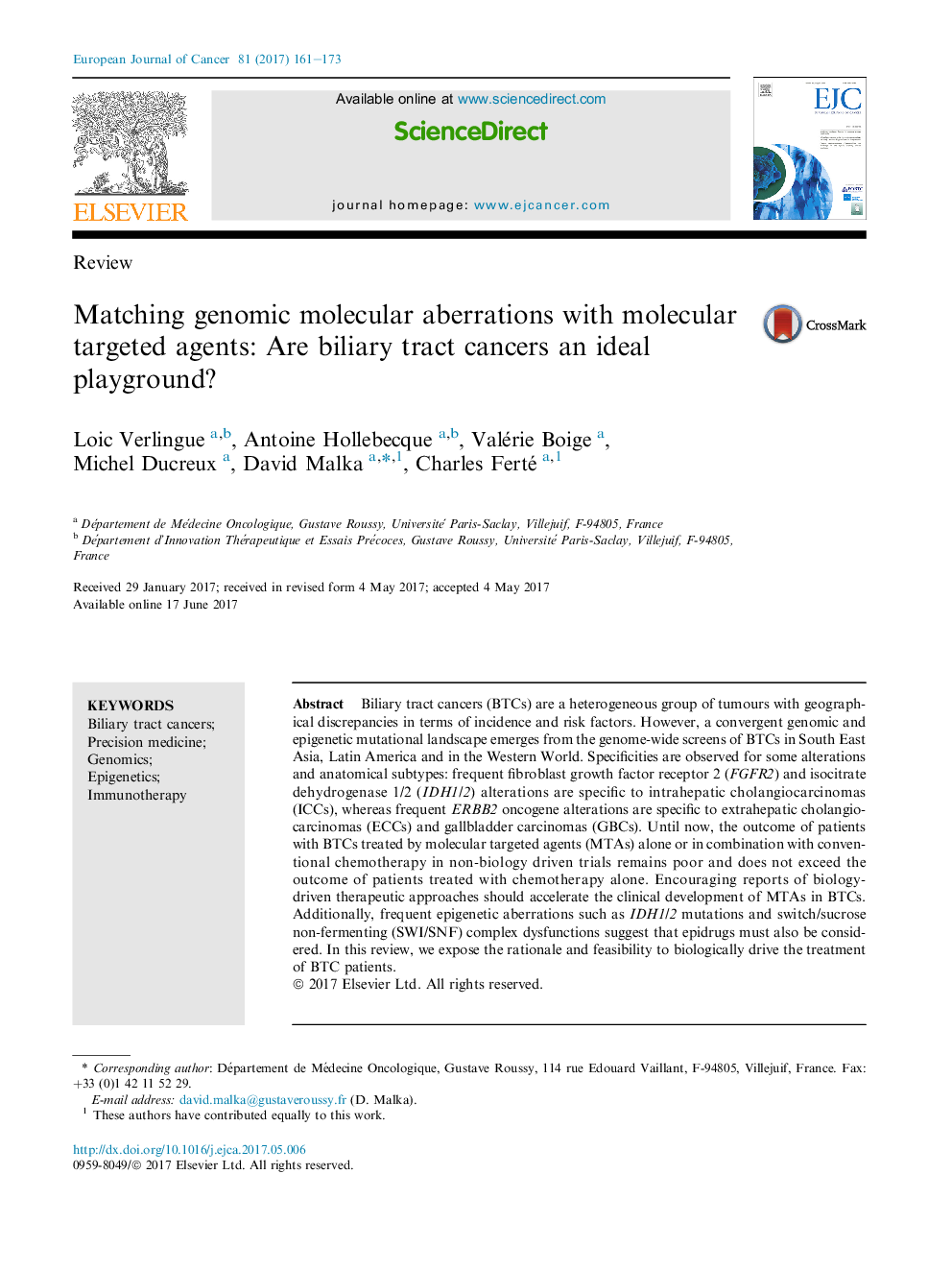| کد مقاله | کد نشریه | سال انتشار | مقاله انگلیسی | نسخه تمام متن |
|---|---|---|---|---|
| 5526590 | 1547051 | 2017 | 13 صفحه PDF | دانلود رایگان |

- The different types of BTCs, whether risk factors are present (parasites, bile flux polymorphism, diabetes mellitus, viral hepatitis) or not, harbour common genomic alterations (HER family, FGFR family, MAPK, PI3K/AKT/mTOR pathways) and epigenetic alterations (IDH, SWI/SNF complex, PRC).
- The molecular landscape of BTCs presents specificities depending on the anatomical subtypes: IDH1/2 and FGFR2 alterations are specific to ICCs, while ERBB2 alterations are specific to ECCs and GBCs.
- The high rate of actionable alterations found in BTCs underscores the need for biology-driven strategies rather than unsuccessful 'all-comers' trials.
- Many epigenetic processes are altered in BTCs suggesting potential activity of epidrugs.
Biliary tract cancers (BTCs) are a heterogeneous group of tumours with geographical discrepancies in terms of incidence and risk factors. However, a convergent genomic and epigenetic mutational landscape emerges from the genome-wide screens of BTCs in South East Asia, Latin America and in the Western World. Specificities are observed for some alterations and anatomical subtypes: frequent fibroblast growth factor receptor 2 (FGFR2) and isocitrate dehydrogenase 1/2 (IDH1/2) alterations are specific to intrahepatic cholangiocarcinomas (ICCs), whereas frequent ERBB2 oncogene alterations are specific to extrahepatic cholangiocarcinomas (ECCs) and gallbladder carcinomas (GBCs). Until now, the outcome of patients with BTCs treated by molecular targeted agents (MTAs) alone or in combination with conventional chemotherapy in non-biology driven trials remains poor and does not exceed the outcome of patients treated with chemotherapy alone. Encouraging reports of biology-driven therapeutic approaches should accelerate the clinical development of MTAs in BTCs. Additionally, frequent epigenetic aberrations such as IDH1/2 mutations and switch/sucrose non-fermenting (SWI/SNF) complex dysfunctions suggest that epidrugs must also be considered. In this review, we expose the rationale and feasibility to biologically drive the treatment of BTC patients.
Journal: European Journal of Cancer - Volume 81, August 2017, Pages 161-173